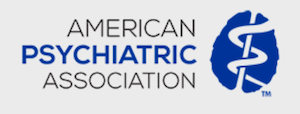Article
Researchers Study Interest Level for Psychiatry Among Medical Students
Author(s):
Special events can be useful as a recruitment method for medical students.

A team of researchers from Morehouse School of Medicine (MSM) in Atlanta presented their results of a project they conducted to develop events that would expose medical students to the field of psychiatry, and to evaluate the impact of those events on the students’ interest in the field through a post-event survey.
The results were presented as a poster at the Annual Meeting of the American Psychiatry Association in San Diego.
There is a shortage of psychiatrists in the United States, with the problem being particularly pronounced in urban underserved and rural communities. According to the Morehouse researchers, more than 50% of the psychiatrists in Georgia are now over the age of 55 years, and to compound the problem, more than one-quarter of the 2015 residency slots open in 2015 were filled by international medical graduates.
The researchers—Simran Brar, MD; Kanakadurga Meyyazhagan, MD; and Glenda Wrenn, MD—pointed out that while the rate of American medical school graduates pursuing psychiatry has increased over the past few years, it is still not one of the top specialties for which they apply. For example, MSM’s total class size has averaged around 90 for the past 5 years, and, during that time, only 3% (2.8) students matched into psychiatry.
To conduct their experiement, the team worked with medical students at Morehouse who are voluntarily participating in a “Psychiatry Interest Group,” which hosted a monthly event for 6 months aimed at increasing interest in the discipline. These events included a resident panel discussion, “psych cinema,” a meet and greet with residents, a local psychiatry conference, and an attending presentation.
After each event, a 12-question post-event survey, which contained a mxi of open-answer, multiple-choice, and Likert scale responses, were distributed to all members of the MSM Psychiatry Interest Group who attended at the end of each event. The survey responses were kept anonymous, and data was entered into RedCap for analysis.
Out of the 27 surveys collected, 70.4% were completed by first-year medical students and 29.6% were completed by second-year students. Out of all the responses, 85.2% of the students “strongly agreed” that they were interested in pursuing psychiatry as their specialty, and 44% of the students indicated that their interest in the discipline changed after attending an event.
By the end of the 6 months, all of the students in this volunteer group had attended at least 3 events. They cited stigma and safety as their major concerns in considering psychiatry as their field of choice, demonstrating a need for more education and awareness about the discipline.
The Morehouse team concluded, based on the results, that special events that are developed and held within an interest group in psychiatry can be useful as a recruitment method. They found that the events that included an opportunity to meet other psychiatry residents had an increased attendance, and hypothesize that these types of events can be well received if they are incorporated as recurring events throughout the medical school year.




